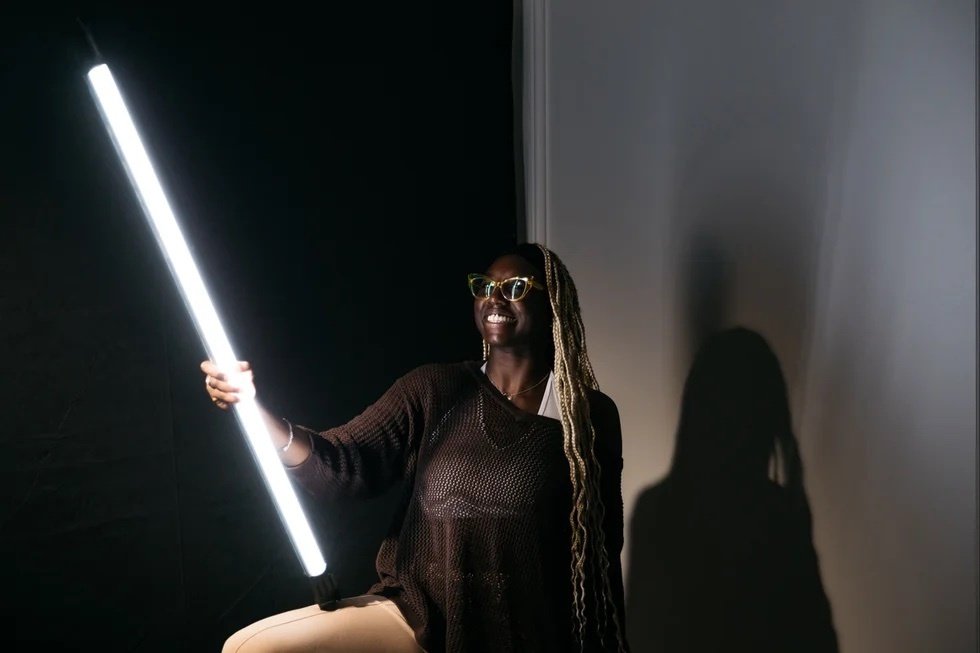Starting from scratch: strategies for securing a job with no experience
Feb 28, 2023 - updated Jan 25, 2024
6 mins


Freelance writer and translator, ex-recruiter
It can take three to six months to land your first job as a graduate, according to the University of Washington. High-paying jobs with no experience aren’t easy to land, and while you might have graduated summa cum laude, in today’s market that simply isn’t enough. When you apply for a job, you’re going to be asked about your previous experience. But how can you land a job if you have none? Career Goals Guru and Coach with over 20 years of experience, Deborah Brown-Volkman, shares her tips for job hunters. What can you include on your resume? How do you write a cover letter with no real substance to put in it? What examples can you share in an interview? Benefit from Brown-Volkman’s life’s work and showcase your skills to land the job you want without any prior experience.
You have more experience than you think
You may think you have no experience because you have no formal work experience in the kind of setting you’re applying for. Brown-Volkman suggests you look at it another way. “It’s not just working for a company that gives you experience, everything in your life gives you experience.” It’s not a case of how to get a job with no work experience, it’s more about knowing how to showcase the experience you do have. Brown-Volkman recommends taking your degree as a starting point. What kind of experience has that given you? What sort of projects have you worked on? What coursework did you do? Was there any teamwork involved? What role did you play in that team? “Education counts as experience,” she insists. “There are a ton of different classes involved in your course and each of those involves different skills relevant to different jobs.”
Next, take a look at your hobbies: if you were the quarterback, you’ve got some leadership experience, and you’re also a team player. If you were in scouts or girls scouts, you’ve surely learned a thing or two. What other extra-curricular activities did you do and what did they teach you? Have you volunteered anywhere? Did you have a part-time job? If you’ve worked in retail you have customer service experience. Leverage the events of your life and use those experiences in your job application.
Write your resume for the advertised position
In Brown-Volkman’s words, “A resume makes a case for a position. The computer or person receiving it compares it to the job description, so you want to make a case for it.” So what can you put in your resume to match the position on offer? “Go through everything you’ve done up to this point in time and then use it to make a case for the job. If you’ve been through everything and you can’t make a case then this is not your job, or at least not now.” If that job is your dream then you can always take steps to get to it, such as upskilling or reskilling.
Your resume should start with a professional summary that introduces who you are and what you bring to the table both personally and professionally. You can then highlight your soft skills, matching them to the job description—things like, “time management, excellent communication skills, team player, presentation skills, and leadership skills.” Alternatively, you can list these under core competencies. Be sure to add in keywords as many recruitment platforms rely on AI to make the first cut—in this case if you haven’t got an ATS-friendly resume you won’t get a look in. Highlight the classes you took as part of your degree that are relevant to the job. If you’re going for tech jobs with no experience, be sure to highlight your technical skills too.
Use a cover letter to tell your story
Not every application needs a cover letter, as Brown-Volkman explains: “These days a lot of the first stage is done online. If you’re uploading your resume to be sorted by a computer, then a cover letter is pointless as it won’t be read. But if you’re writing to a person—sending an email—then there’s a place for a cover letter.” Your cover letter allows you to tell a story. Brown-Volkman suggests something like sharing a project you worked on as part of your coursework, weaving it into a story, and talking about some of the things you learned from it. Used properly, a well-crafted cover letter can help you get a job with no experience.
Apply for the right jobs
When it comes to getting a job with no experience, start with your degree or what you studied in school. When you’re looking for an entry-level role, your education counts as experience. It makes sense to apply for jobs that match the type of experiences you’ve had during your degree. If you’re not finding matches then you’re probably looking at the wrong roles, or you need to add another string to your bow before you apply for these roles. For entry-level roles you aren’t expected to have years of work experience; they’re looking for a mindset, soft skills, and someone who will fit into their company and culture.
No degree? No problem!
While the majority of advice we’ve shared thus far assumes that the job hunter has attended some form of formal education, that doesn’t mean there are no options if this isn’t the case for you. There are plenty of jobs that don’t require a college degree, and plenty of alternative learning models out there for you to prepare yourself for a new role.
If you consistently get the same feedback that a certain thing is missing from your skillset, find out how to add it. Brown-Volkman recommends LinkedIn Learning for business courses or sites like Udemy or Coursera. These short courses will help you enhance your skills. You could also try volunteering, though she says it’s best to get this under your belt while you’re still a student.
Prepare for the interview
Brown-Volkman describes preparing for an interview as the spoken version of a resume, making a case for the job. “How you prepare is you go through the job description and what they’re looking for, and you come up with stories and examples to match it.” This will help you build your confidence too.
Making a list of your strengths and weaknesses and looking at typical interview questions online can also help you get a job with no experience, but your top goal is to translate the job description and tell the interviewer you can fit into it. Dress professionally, speak professionally, show up on time, and talk about the things you’re good at. Remember, if you’re called to interview then they feel like you can do the job. An interview is about whether you fit with the team, and from your perspective, whether the company and role are a good fit for you. Brown-Volkman says, “You want to show them you can be trusted and relied upon to get the job done—that’s what will get you the job.”
Plan while you’re still a student
Think about how to get a job with no experience while you’re still a student. It can help you focus on your goals and get the real-life experience you need to add that extra dimension to your application. Decide where your career is heading and seek out volunteering opportunities or short-term online learning courses to get the skills employers are looking for. If you have a specific job in mind, get the skills you need under your belt before you get to the job hunt. Reach out to people working at companies you want to target and ask them to share information with you in the form of an informational interview.
In Brown-Volkman’s opinion, people like talking to students and passing on their knowledge. It makes them feel good about themselves. When you’re a student you’re only asking for information and advice, you aren’t looking for a job so people are usually happy to share.
Fake it til you make it … kind of
According to Brown-Volkman, “Fake it ‘til you make it is confidence, and nobody can tell if you’re faking it or not.” Walk into your interview, networking conversation, or career fair with your head held high and go for it. You can always analyze what you did afterward and figure out what worked or didn’t.
Be warned though, this isn’t about faking skills you don’t have or bragging about non-existent experience. You should always be authentic and honest and never exaggerate to the point where you’re blatantly lying—you will be found out sooner or later! Simply talk about all the great things you did and school and what you learned, your projects, hobbies, and part-time jobs, and tell them why you think you’re the perfect person for the job.
If you’re stuck, get help from a coach
If you’ve looked through all your life experience and can’t come up with the goods, then reach out to a coach for help. Brown-Volkman says, “Career coaching is for when you’re stuck and you can’t get unstuck by yourself.” It’s not reserved for high-level roles, it’s there to help you with whatever stage you need, whether that’s practicing interviewing or introducing yourself at a networking event, teasing out your experience to write a great resume or cover letter, or getting clarity on the career path you want to follow.
Don’t get in your own way
To get a job with no experience, Brown-Volkman believes we have to get out of our own way, “Everybody has something that they feel is not good enough,” she says. If you’re walking into your job search with the mindset that you don’t have enough experience, you need to go back to the first tip in this list. Work out what experience you do have, follow the process of making a case for the job, both on paper and in person, believe in yourself, and go for it!
Photo: Welcome to the Jungle
Follow Welcome to the Jungle on Facebook, LinkedIn, and Instagram, and subscribe to our newsletterto get our latest articles every week!

More inspiration: Find a job

Written in the stars: How astrology can boost your job hunt
Looking for cosmic career advice? From Aries bosses to Virgo perfectionists, your zodiac sign could be your guide to landing the perfect role.
Dec 24, 2024

Find your dream job through the quiet power of self-awareness
"It’s much easier to reach your dream destination when you know exactly where you want to go."
Nov 27, 2024

5 top US cities that recent grads are flocking to
The job market remains a challenging landscape for recent graduates, and some are looking to move for better job prospects.
Nov 19, 2024

Spooky Special: 5 frightening fumbles to avoid on the job hunt
Boo! Don't let the job hunt be the scariest thing you do this Halloween. Here are 5 spooky mistakes and how to avoid them.
Oct 24, 2024

Are durable skills the key to lasting career success?
Ever wondered what really makes a career last? The key might be mastering the right skills that evolve with you.
Oct 15, 2024
The newsletter that does the job
Want to keep up with the latest articles? Twice a week you can receive stories, jobs, and tips in your inbox.

Looking for your next job?
Over 200,000 people have found a job with Welcome to the Jungle.
Explore jobs